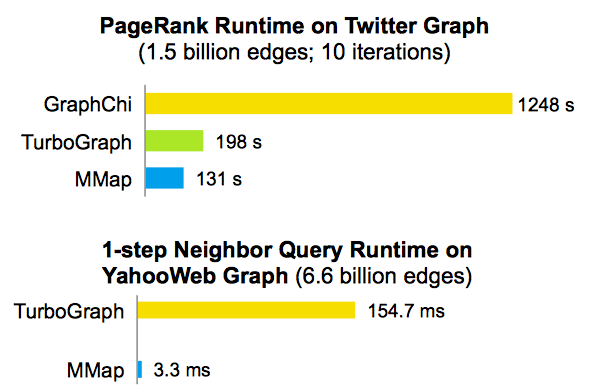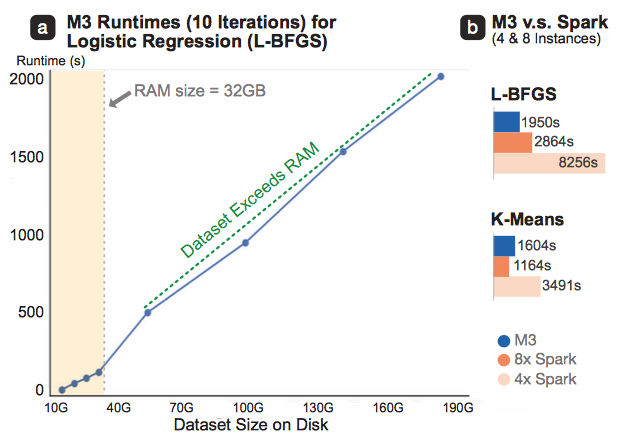Broader Impacts of this Project
-
 Faster I/O Operations
Faster I/O Operations
-
 Less Overhead
Less Overhead
-
 Simpler Code
Simpler Code
Research Goals
This project investigates a fundamental, radical way to scale up machine learning algorithms based on virtual memory, one that may be easier to code and maintain, but currently under-utilized in by both single-machine and multi-machine distributed approaches. This research aims to develop deep understanding of this radical idea, its benefits and limitations, and to what extent these results apply in various settings, with respect to datasets, memory sizes, page sizes (e.g., from the default 4KB to the jumbo 2MB pages that enable terabyes of virtual memory space), and architectures (e.g., testing on distributed shared memory file systems like Lustre that support paging and virtual memory over large computer clusters). The researchers will build on their preliminary work on graph algorithms that already demonstrates significant speed-up over state-of-the-art approaches; they will extend their approach to a wide range of machine learning and data mining algorithms. They will also develop mathematical models and systematic approaches to profile and predict algorithm performance and energy usage based on extensive evaluation across platforms, datasets, and languages.Significant speed-up over other single-machine approaches

Works for datasets as large as 200GB, at speed comparable to 8-node Spark

Publications
Most Relevant Papers
Related Papers
Dissertations
Thesis: Graph-based Algorithms and Models for Security, Healthcare, and Finance
Thesis: Adaptive Network Exploration and Interactive Querying
Code
MMap Code (BigData'14)
We have implemented several algorithms using memory mapping. Our preliminary executable jar can be downloaded here and will be available on GitHub soon.
In the current executable jar, we have included:
- Connected Components
- PageRank
- Triangle Counting
- One-Step Neighbors
- Two-Step Neighbors
- Please make sure Java 7 or higher is installed
- Download the Jar file using the button below and unzip it
- Carefully read README.txt contained in the folder
- Launch a command line window, change the directory that contains the Jar file
- Follow the instructions in README.txt to run algorithms
Below, we have included the links to download some large graph datasets and their binary versions (if allowed) on which the algorithms can run on.
The source code and executable jar are being distributed under MIT License
Download MMap Executable JarM-Flash Code (PKDD'16)
C++ code and documentation available at M-Flash GitHub repository.Large Graph Datasets
Below are some datasets we have used for evaluating our approach.
| #Node | #Edge | Source text file | Binary edge file | |
| LiveJournal | 4,847,571 | 68,993,773 | Link | Download |
| 41,652,230 | 1,468,365,182 | Link | Download | |
| YahooWeb | 1,413,511,391 | 6,636,600,779 | Link (requires Yahoo's NDA) | Unavailable due to NDA |
People
This project's researchers and contributors include:
Funding Agency and Acknowledgement
NSF IIS 1551614
PIs: Polo Chau, Rich Vuduc
Funded: $184,904, 10/1/2015 – 9/30/2017
Program Manager: Aidong Zhang
This material is based upon work supported by the National Science Foundation under Grant No. IIS-1408287. Any opinions, findings, and conclusions or recommendations expressed in this material are those of the author(s) and do not necessarily reflect the views of the National Science Foundation.









